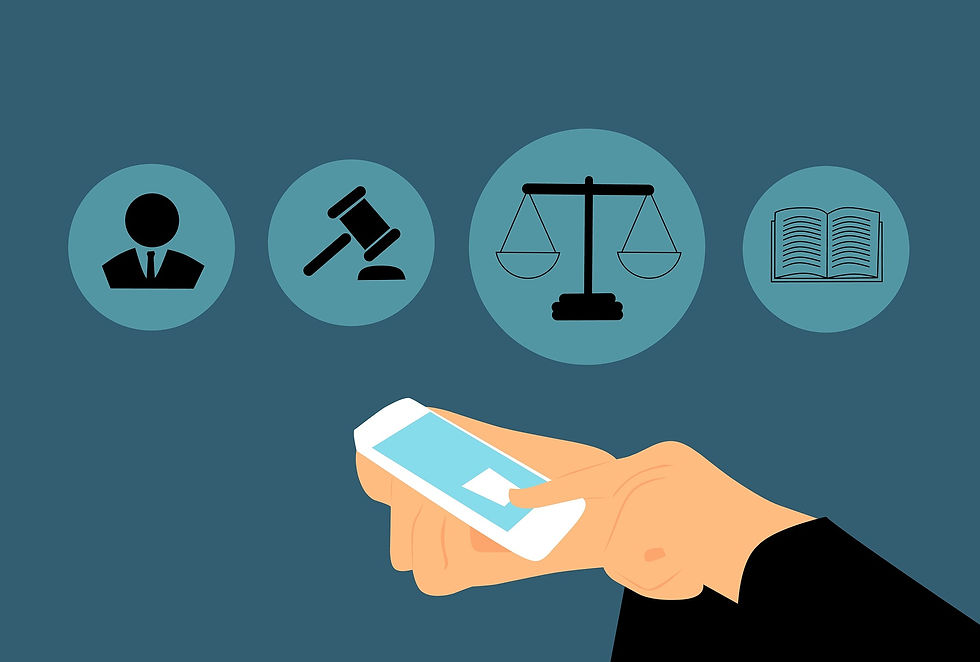What is Legal Tech?
- Wefaq Law Firm

- May 16, 2022
- 2 min read
Updated: Apr 16, 2023

Law tech or Legal tech is the term used to describe technologies that aim to support, supplement or replace traditional methods for delivering legal services, or that improve the way the justice system operates.
Lawtech covers a wide range of tools and processes, such as:
document automation
advanced chatbots and practice management tools
predictive artificial intelligence
smart legal contracts
knowledge management and research systems
The lawtech sector consists of law firms delivering legal services through technology, and the vendors that develop and supply technology solutions to those firms.
Systems are already available that can draft documents, undertake legal research, disclose documents in litigation, perform due diligence and provide legal guidance, and resolve disputes online.
How lawtech benefits legal services
The benefits of lawtech include:
increased efficiency, productivity and growth
reduced costs
better outcomes for clients and organizations
But what legal tech solutions are emerging in the sector? The legal profession is famously averse to major upheaval and change, but there are some innovations which could change legal processes permanently and for the better.
Automation

Automated processes are nothing new to larger modern businesses, where large swathes of paperwork and documentation are handled by algorithms. Uptake by the legal profession has been slow, owing in part to the legal implications of mishandled information. But automation technology today can eliminate the possibility of clerical error nearly entirely, streamlining administrative processes and giving lawyers more time to focus on casework and with contract amendment and review softwares, everything runs even smoother.
AI-Assisted Research

Artificial intelligence has also come a long way in less than a decade, with commercially available machine-learning algorithms that can sift through and process information at a rapid pace. Machine learning research programs represent a potential sea-change in the division of labour at legal practices, as programs can assist lawyers and clerks in the examination of evidence to find patterns and strands of case-relevant information. This can make discovery a much quicker and much more robust process for firms and clients.
Virtual Courtrooms

Remote working technology was embraced with open arms by a majority of industries in the early months of 2020, as coronavirus restrictions and lockdown measures prevented in-person meetings. With a steadily growing backlog of cases, courtrooms across the UK and the US had to swiftly adapt to the ‘new normal’ and implement remote capabilities of their own. As the worst of the pandemic recedes, these provisions may well be here to stay, providing a streamlined way to continue to cut down the court backlogs.
Secure File-Sharing

One of the major roadblocks to the adoption of tech solutions in the legal profession has been the security of private and privileged information. For the legal establishment, physical documentation was easier to police, and data security breaches less likely to impact cases. But developments in blockchain technology are slowly eliminating the possibility of fraudulent access to legal documents, with smart contracts enabling lawyers and clients to share information attached to an immutable ledger. Alterations are written into the contract as they happen, enabling secure information updates near-instantaneously.




Comments